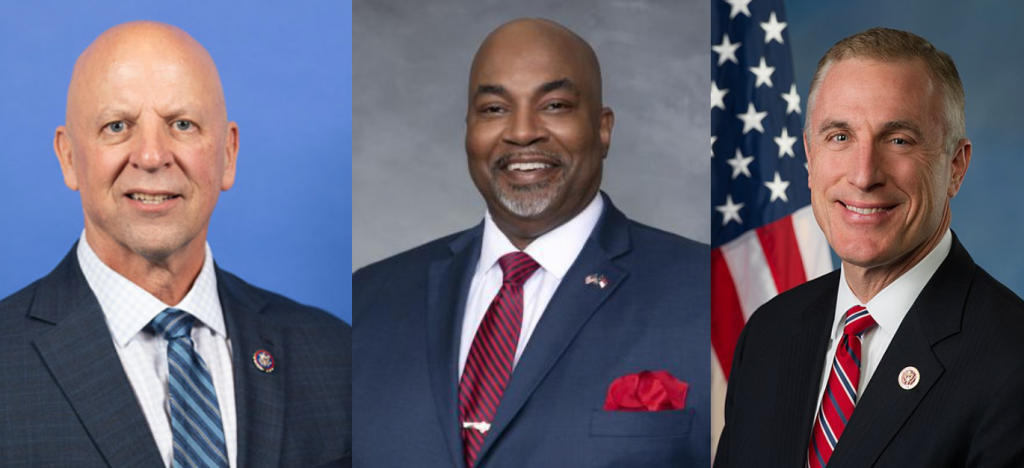The Republicans Against Abortion Except For Themselves

Introduction: Oscar Wilde, in his novel The Picture of Dorian Gray, aptly remarks, “And what sort of lives do these people, who pose as being moral, lead themselves? My dear fellow, you forget that we are in the native land of the hypocrite.” This quote strikingly resonates in the context of the heated debate over abortion rights in the United States, a topic that continues to stir intense emotions and controversy.
In the realm of U.S. politics, particularly among several Republican leaders, a strong pro-life stance is often prominently featured, rooted in religious beliefs and personal convictions. However, the intriguing question arises: Do these public figures’ private lives mirror the moral principles they publicly advocate?
This discussion explores the experiences of three Republican politicians whose personal decisions have, at times, sharply contrasted with their vocal public opposition to abortion.
A Twist in North Carolina: Lt. Gov. Mark Robinson North Carolina Lt. Gov. Mark Robinson (R), known for his conservative viewpoints, is a vocal critic of abortion, often citing moral and religious reasons for his stance. He has famously stated, “I’m not saying abortion is wrong cause I said so; it’s wrong cause God says so,” a sentiment echoing the views of his supporters.
Nevertheless, a 1989 incident, as reported by The Charlotte Observer, reveals a different facet of Robinson’s life. Both Robinson and his wife chose to have an abortion, a decision he later discussed openly on Facebook, expressing regret and emotional turmoil. This revelation offers a more complex view of his anti-abortion position.
- Public Stance: Robinson has consistently expressed his anti-abortion views, using graphic language to condemn the practice, as highlighted by The Raleigh News & Observer and The Charlotte Observer.
- Private Actions: Contrasting with his public stance, Robinson and his wife made the personal choice to have an abortion early in their relationship.
- Consequences and Public Reaction: The disclosure led to significant criticism, with accusations of hypocrisy due to the disparity between his public and private positions. The impact on his political career and public image continues to
unfold, drawing attention to the complexities of personal beliefs versus public personas.
The Murphy Dilemma: Actions and Words Former U.S. Rep. Tim Murphy (R) of Pennsylvania, recognized for his work on mental health and staunch anti-abortion views, found himself at the center of a controversy. As revealed by the Pittsburgh Post-Gazette, Murphy faced a scandal that sharply contradicted his public image.
Engaged in an extramarital affair, Murphy was implicated in a text message exchange where he appeared to encourage his mistress, Shannon Edwards, to consider an abortion during a pregnancy scare. Although it turned out she wasn’t pregnant, the exposure of these messages undermined his credibility and raised questions about the sincerity of his anti-abortion stance. The fallout was immediate, leading Murphy to resign from Congress, leaving many to ponder the disparity between his public declarations and private actions.
- Public Stance: Murphy was a vocal opponent of abortion, actively advocating against it in his political role.
- Private Actions: Reports from the Pittsburgh Post-Gazette suggest that Murphy encouraged his mistress to contemplate an abortion during a suspected pregnancy.
- Consequence and Response: Following the scandal, Murphy resigned, with U.S. House Speaker Paul Ryan acknowledging his resignation and noting his significant contributions to mental health issues in Congress.
DesJarlais: A Tennessee Tale Rep. Scott DesJarlais (R) from Tennessee, known for his unwavering opposition to abortion, faced a personal controversy that stood in stark contrast to his public stance. As reported by The Washington Post and The Hill, a phone transcript surfaced in which DesJarlais seemed to pressure a woman he was involved with to have an abortion. Further complicating his public image were reports of him encouraging his ex-wife to have two abortions.
These revelations sparked debates in Tennessee’s political circles, with many questioning the alignment of DesJarlais’ public advocacy for pro-life values with his private decisions. While some defended him, others expressed disillusionment with the inconsistency between his public and private stances.
- Public Stance: DesJarlais has been a firm pro-life advocate, consistently supporting anti-abortion legislation.
- Private Actions: According to The Washington Post, during his 2001 divorce proceedings, DesJarlais supported his ex-wife’s decision to have two abortions.
- Consequence and Voter Reaction: Despite confirming the abortions, DesJarlais claimed they were due to medical concerns. Remarkably, he was re-elected in subsequent elections, highlighting a potential disconnect between public opinion and personal conduct.
These cases underscore the complex interplay between personal beliefs, public statements, and actions in the realm of political leadership, particularly on contentious issues like abortion rights.
Bibliography
- Bajpai, A. (2022, March 24). NC’s Mark Robinson says abortion was ‘hardest decision’ he and his wife have made. The News & Observer. Retrieved from https://www.newsobserver.com/news/politics-government/article259721180.html#storylink=cpy
- Belz, K., & Carroll, C. (2012, November 15). Scott DesJarlais supported ex-wife’s abortions, slept with patients, divorce transcript shows. Times Free Press. Retrieved from https://www.timesfreepress.com/news/2012/nov/15/scott-desjarlais-supported-abortions-slept-patient/
- Brodey, S. (2022, June 30). Will the ‘Pro-Life’ GOP Rep Who Paid for an Abortion Ever Tweet Again? The Daily Beast. Retrieved from https://www.thedailybeast.com/will-the-pro-life-gop-rep-scott-desjarlais-who-paid-for-an-abortion-ever-tweet-again?ref=scroll
- DeBonis, M. (2017, October 5). Rep. Tim Murphy resigns from Congress after allegedly asking woman to have abortion. The Washington Post. Retrieved from https://www.washingtonpost.com/powerpost/rep-tim-murphy-resigns-from-congress-after-allegedly-asking-woman-to-have-abortion/2017/10/05/7a68a414-aa08-11e7-850e-2bdd1236be5d_story.html
- Doubek, J., & Taylor, J. (2017, October 5). Anti-Abortion Rep. Tim Murphy Will Resign After Report On Abortion Request. NPR. Retrieved from https://www.npr.org/sections/thetwo-way/2017/10/05/555798758/anti-abortion-rep-tim-murphy-wont-seek-re-election-after-report-on-abortion-requ
- McAuliff, M. (2012, October 10). Scott DesJarlais, Pro-Life Republican Congressman And Doctor, Pressured Mistress Patient To Get Abortion. HuffPost. Retrieved from https://www.huffpost.com/entry/scott-desjarlais-abortion-pro-life_n_1953136
- Potter, C. (2017, October 5). Tim Murphy resigns after pressure mounts following texts on abortion. Pittsburgh Post-Gazette. Retrieved from https://www.post-gazette.com/news/politics-nation/2017/10/05/Tim-Murphy-resigns-congressman-pennsylvania-abortion-texts-congress-paul-ryan/stories/201710050206
- Specht, P., Anderson, B., & Leslie, L. (2022, March 22). ‘It was wrong’: North Carolina Lt. Gov. Mark Robinson says he paid for abortion in 1989. WRAL. Retrieved from https://www.wral.com/story/it-was-wrong-north-carolina-lt-gov-mark-robinson-says-he-paid-for-abortion-in-1989/20200461/

